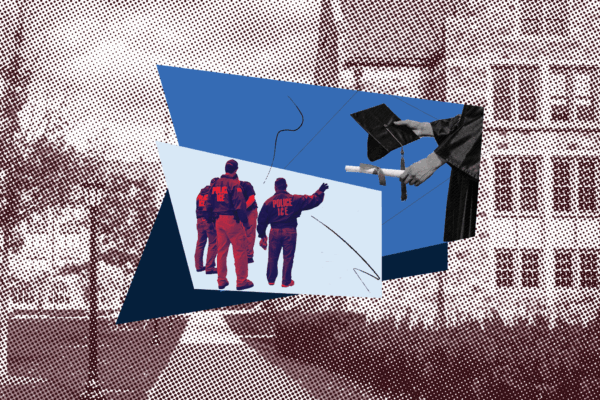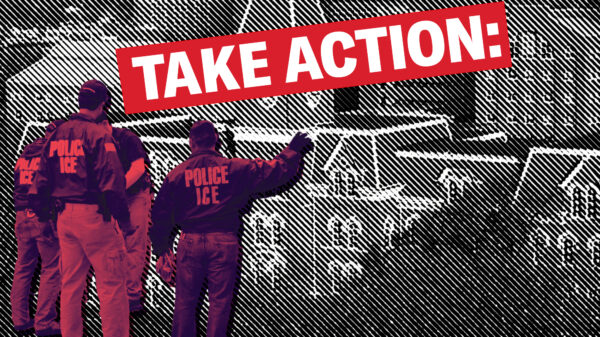Over the course of the last three years, students throughout the state have seen their freedoms stripped and legislated away by the Ohio General Assembly. Senate Bill 104 requires students to use bathroom facilities aligned with their sex assigned at birth, restricting trans and gender- nonconforming individuals from safe facilities in Ohio K-12 schools and college campuses, Senate Bill 1 has imposed limitations on academic freedom for Ohio colleges’ students and faculty, House Bill 458 prevents many Ohio students from voting. Senate Bill 1 has not only cut all diversity, equity, and inclusion programs, but also creates rules around classroom conversations and restricts how faculty can regulate discussions. The immediate effects of these pieces of legislation are troubling alone, but the chilling effects that they have had on college campuses are similarly worrying. Students feel as though their expressive conduct may be met with retaliation by their college; People fear that their schools and institutions will no longer protect them and their freedoms.
Here at Oberlin, we have seen a heightened police presence and promises from administration to enthusiastically cooperate with law enforcement following the shooting of Charlie Kirk. Students have received multiple communications from the college’s President, Carmen Ambar, vowing further commitment to actively collaborate with law enforcement. Crucially, President Ambar’s statements lack any concrete description about what collaboration with law enforcement might entail or what conversations with local police are ongoing. Nor has the college publicly articulated its approach to policing or immigration enforcement in any prior statement. This persistent silence on such a pressing matter from our institutional leaders in tandem with occasional sightings of immigration enforcement on or near campus has left many students uncertain and fearful.
The majority of Oberlin students feel the presence of law enforcement does nothing to protect students’ rights on campus, but makes many feel actively under threat. This coincides with the link between increased policing and racial profiling. This vow to collaborate only reminds Oberlin’s historically activist student body that their ability to assemble and protest is feeble and unprotected by our campus leaders. Further, our school administration was quick to push back against one student who posted publicly on the matter of Kirk’s death. Oberlin as a private institution should ostensibly be unaffected by much of the language around speech in SB1, yet our campus authorities have already started to anticipate government pushback. As a small college, we are not the primary targets of anti-speech legislation, yet we already see apprehension among students to speak as loudly and as honestly before.
Oberlin is a historically progressive institution and is known for its reputation for protecting student rights and welcoming individuals of all walks of life. Yet, as our leaders face the potential of anti-speech retaliation by the state, they now tuck tail and choose to pre-emptively comply. Pre-emptive compliance is the tendency of decision makers to cooperate in advance of specific orders during a political climate where basic rights are frequently under threat. We instead call for campus leaders to engage in real dialogue with their constituents, that being students, staff, and faculty, and to pursue meaningful alternatives to potentially hostile law enforcement.
As I have spoken to individuals in and around campus, the greatest effect of this pre-emptive compliance has been a sense of worried uncertainty. Students don’t know how recent pushbacks on colleges will affect Oberlin, only that our administration has already begun responding without concrete guidance. Though Oberlin students will never be hesitant to express themselves, there is now a sense that self-expression is not so proudly protected by our school as it once was.
Our Campus Action Team here at Oberlin is committed to pushing our ability to speak without fear, even when school officials are not.
While our administration has yet to state that it will engage in similar cooperation with ICE, we worry that enthusiastic police collaboration will swiftly become enthusiastic collaboration with immigration enforcement. To prevent this escalation, we are campaigning for our campus administration to publicly reject all 287(g) agreements. 287(g) agreements are contracts made between school and state to deputize campus safety as ICE agents under the immigration act of 1996 and threaten students’ rights to due process and equal protection under the law. The statewide campaign urges administrators to publicly reject collaboration with ICE and adopt transparent policies surrounding campus safety, immigration, and free speech.
Despite our administration’s turn to a “tough on crime” approach in their recent statements about law enforcement, we still believe that Oberlin can be a progressive leader among higher education institutions; We firmly believe that Oberlin can once again set a powerful standard for this state and the nation. To tell Oberlin specific leaders that we want the college to once again stand for civil rights in this time of crisis, please refer to the Oberlin sign on letter; Likewise, sign the statewide petition to let all campuses know that 287(g) agreements are unwelcome.
The Campus Action Teams are campus organizations affiliated with the ACLU of Ohio that work to develop student leadership and advocate for civil rights priorities in Ohio. The Campus Action Teams join the ACLU of Ohio in advancing its statewide goals around engaging democracy, preserving reproductive freedom, protecting immigrant rights, curbing the criminalization of poverty, and bolstering LGBTQ+ rights while also engaging on more college-specific issues such as campus speech & assembly.
Join us in keeping students safe and college campuses free.




